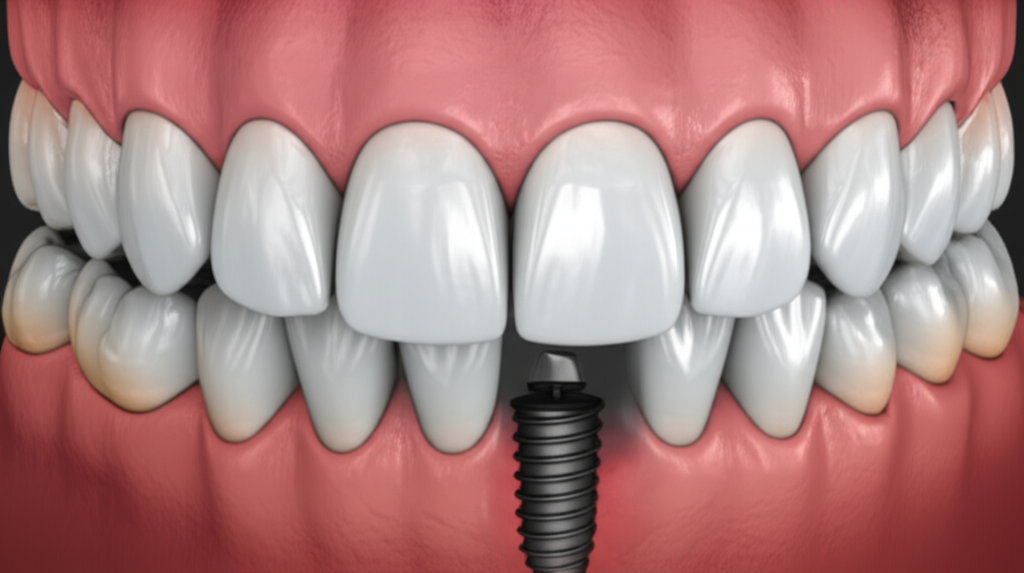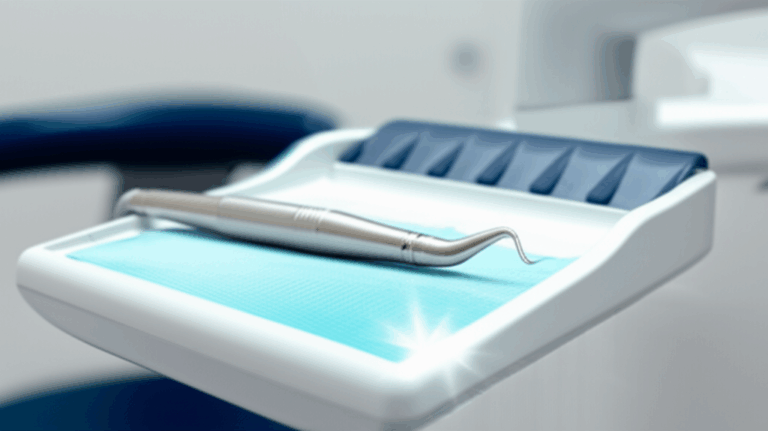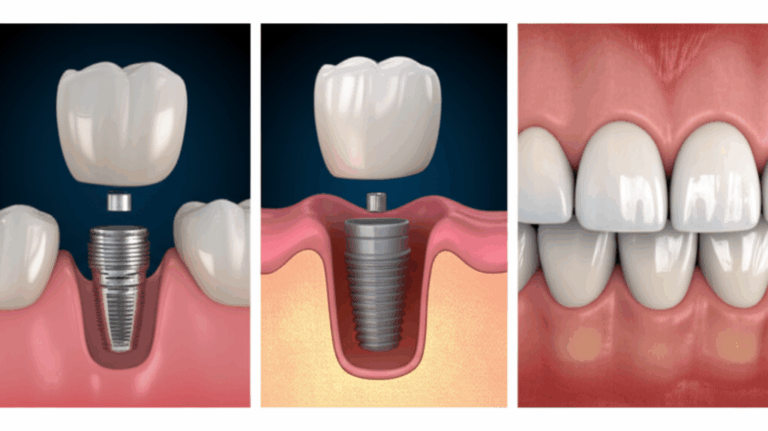
Do Dental Implants Decay? Understanding Their Lifespan, Care, and Common Issues
When you think about dental implants, you might wonder if they can get cavities like real teeth. That’s a big question, especially if you spent time, money, and hope on getting a bright, healthy smile. In this guide, I’ll answer your biggest worries about dental implant decay, give you easy tips for taking care of them, and help you keep your implants for many years.
Table of Contents
- What Are Dental Implants and How Do They Work?
- Do Dental Implants Decay Like Real Teeth?
- So, What Can Actually Go Wrong with Dental Implants?
- What Is Peri-implantitis?
- Can Dental Implant Crowns Be Damaged?
- Can Implants Fail to Fuse with the Bone?
- How Long Do Dental Implants Really Last?
- What Daily Care Do Dental Implants Need?
- What If I Notice a Problem with My Dental Implant?
- How Can I Make Sure My Implants Last a Lifetime?
- Quick Reference Data Table
- Frequently Asked Questions
- Summary: Top Things to Remember
What Are Dental Implants and How Do They Work?
Dental implants are one of the coolest things in dental work today. You might have seen them or maybe even have one. A dental implant is a small metal root, usually made of titanium or tough zirconia (a type of ceramic). It’s put deep into your jawbone. On top of that, your dentist adds an abutment and a tooth-shaped cap called a crown.
Why do people pick implants instead of bridges or dentures? Implants feel really natural and can last much longer. They fit right into your jawbone, making them super strong. Thanks to special dental labs, these new teeth can look so real that only you and your dentist will know.
Do Dental Implants Decay Like Real Teeth?
Let’s get right to it: Dental implants don’t decay. That’s the truth! Unlike real teeth, implants can’t get cavities.
Why is that? Implants are made from stuff that bacteria can’t break down. Cavities show up when sugar-loving germs eat away at your tooth’s hard shell (enamel), but implants have no enamel, pulp, or dentin. There’s nothing soft or natural for germs to eat.
Think of an implant as a stone pillar and your real teeth as wooden posts. Wood can rot, but stone can’t. So, while real teeth need protection from decay, implants are safe from this problem.
So, What Can Actually Go Wrong with Dental Implants?
Even though implants don’t decay, it doesn’t mean you can forget about taking care of them. I’ve seen people thinking, “Well, if they can’t get cavities, I don’t need to clean them as much!” That’s just not true.
Here’s what’s real: The gums and bone around your implant can still have trouble. If you skip brushing or miss dental visits, germs can cause infections in the gum or even the jawbone.
Let’s look at what can go wrong:
- Peri-implantitis: This is the main problem. It’s an infection in the gum and bone around the implant.
- Implant crown damage: The metal post is strong, but the tooth-shaped crown on top can chip or get loose.
- Mechanical failure: Rare, but sometimes the implant screw or post can break.
So, even though the “tooth” can’t decay, other things around your implant might go wrong if you don’t care for them right.
What Is Peri-implantitis?
Peri-implantitis is a tough word, but it’s super important. It’s when the area around the implant gets swollen and infected. This is the “bad guy” for dental implants.
How does it start? Not cleaning well, eating too much sugar, or health problems like diabetes can make it worse. Here’s what happens:
Think of your implant like a tree, and your gums are the dirt. If the dirt washes away, the tree falls over. That’s what happens with peri-implantitis.
What should you watch for?
- Red, swollen, or bleeding gums
- Bad breath
- Pain near your implant
- Pus or leaking stuff
- Your implant moves or feels loose
Problem: Ignore these signs, and you might lose your implant.
Agitate: No one wants to hide their smile or only eat soft foods!
Solution: Clean your teeth every day and see your dentist often.
Can Dental Implant Crowns Be Damaged?
The part you see—the crown—works a lot every day. Chewing, talking, even chewing on ice can wear it out.
Common issues:
- Crowns can break or crack, especially if you grind your teeth or bite hard things.
- The glue (cement) or screw holding your crown might get loose.
- Over time, crowns can stain just like real teeth.
Here’s a tip: If your implant crown feels loose or looks weird, call your dentist right away. Small fixes are easy, but waiting can mean more costs and trouble.
Techs in top dental labs make strong, natural-looking crowns that match your smile. But even the best crowns need good care and check-ups to keep going.
Can Implants Fail to Fuse with the Bone?
A dental implant depends on something called osseointegration—that’s just a fancy word for your bone growing around and holding the implant.
Sometimes things don’t work out:
- If your jaw’s too weak or doesn’t heal right, the implant won’t stick.
- Smoking and not controlling diabetes can slow down healing.
- Putting too much pressure on a new implant (like biting hard) can cause problems.
What can happen?
A loose dental implant feels wobbly, and if your dentist catches it early, they may be able to fix it. If not, it may need to come out and be replaced later.
How Long Do Dental Implants Really Last?
People say implants can last “a lifetime.” For lots of folks, that’s true—dental implants often last 20 years or more.
But what’s the trick? Keeping implants for a long time depends on:
- Good cleaning: Brush, floss, and use the right cleaning tools.
- Regular dental check-ups: Every six months or as your dentist says.
- Healthy habits: Don’t smoke, eat less sugar, and manage problems like diabetes.
- A good dental team: You want people who know what they’re doing, using the best stuff from labs like china dental lab.
Fun fact: Studies show dental implants work great about 95% of the time after 10 years[^1].
What Daily Care Do Dental Implants Need?
Implants can’t decay, but do you still need to brush and floss? Yes! You need to be careful—because losing an implant is much harder than fixing a cavity.
Here are my top care tips:
- Brush two times a day: Use a soft or electric toothbrush.
- Floss daily: Try special implant floss, little brushes, or a water flosser to clean between teeth.
- Rinse with mouthwash: If your dentist says so.
- Eat healthy: Eat fruits and veggies, and less sugar or soda.
- See your dentist for check-ups: Cleanings help catch trouble early.
Even the strongest lab-made crowns need your help to stay shiny and tough.
What If I Notice a Problem with My Dental Implant?
Sometimes stuff happens even when you do your best. That’s okay—acting fast can save you a lot of trouble.
Here’s what you might see:
- Bleeding or swelling around your implant
- A crown that feels loose or looks chipped
- Bad smell or taste close to your implant
- Pain or throbbing in your gums
If you see these, call your dentist right away.
What could your dentist do?
- Clean around your implant really well
- Give you special mouthwash or antibiotics
- Tighten or fix your crown
- Take x-rays to check your bone
- Maybe suggest surgery if the infection is deep
Waiting too long makes it worse—and your implant is too important not to care for!
How Can I Make Sure My Implants Last a Lifetime?
Here’s a quick list to keep your smile strong:
- Brush and floss your implants and other teeth every day.
- Don’t use your teeth to open bottles, tear packages, or chew hard things.
- Wear a mouthguard if you grind your teeth at night.
- Control health problems like diabetes with your doctor’s help.
- Don’t smoke; it’s one of the worst things for your implant.
- See your dentist at least twice a year for check-ups.
If you’re not sure or want another opinion, find a dental office that uses the latest tech and good labs—like a strong digital dental lab.
Quick Reference Data Table
| Problem | What Happens | How to Prevent | How to Fix |
|---|---|---|---|
| Peri-implantitis | Gum/bone infection, bleeding, implant feels loose | Good cleaning, no smoking | Professional cleaning, maybe surgery |
| Crown damage | Crown chips, cracks, or gets loose | Don’t bite hard or chew ice | Fix or replace crown |
| Osseointegration failure | Implant doesn’t stick to bone, feels wobbly | Healthy bone, gentle healing | Remove and replace implant |
| Screw breaks | Part inside breaks (rare) | Good placement, don’t use big force | Fix or change parts |
| Staining | Crown looks dull or changes color | Brush well, avoid stain foods | Cleaning at dentist, new crown |
Frequently Asked Questions
Can dental implants get cavities?
No, dental implants are made from things like titanium and zirconia, which can’t decay or get cavities.
What is the most common reason implants fail?
The main cause is infection from poor cleaning, usually peri-implantitis.
Does smoking hurt dental implants?
Yes. Smoking makes healing much harder and raises the chance of gum problems, bone loss, and implant failure.
Are regular check-ups still important if I have implants?
Yes! Your dentist can spot issues early and help your implants stay healthy for a long time.
Summary: Top Things to Remember
- Dental implants do not decay, but the gums and bone around them can still get infected.
- Good care is important: Brush, floss, and visit your dentist often.
- Peri-implantitis is the biggest risk for implant health. Look out for swelling, bleeding, or pain.
- Implant crowns can be damaged, so don’t chew on hard things and see your dentist if something goes wrong.
- Healthy habits matter the most: Don’t smoke, eat well, and manage health problems.
- With good care, implants can last a lifetime, making your investment and smile last.
Remember, if you have questions or need more help, talk to your dentist or look up reliable dental info online. Your smile is worth it!
[^1]: Pjetursson, B.E., et al. (2012). “A systematic review of the survival and complication rates of implant-supported fixed dental prostheses (FDPs) after a mean observation period of at least 5 years.” Clinical Oral Implants Research, 23(S6), 22–38.








